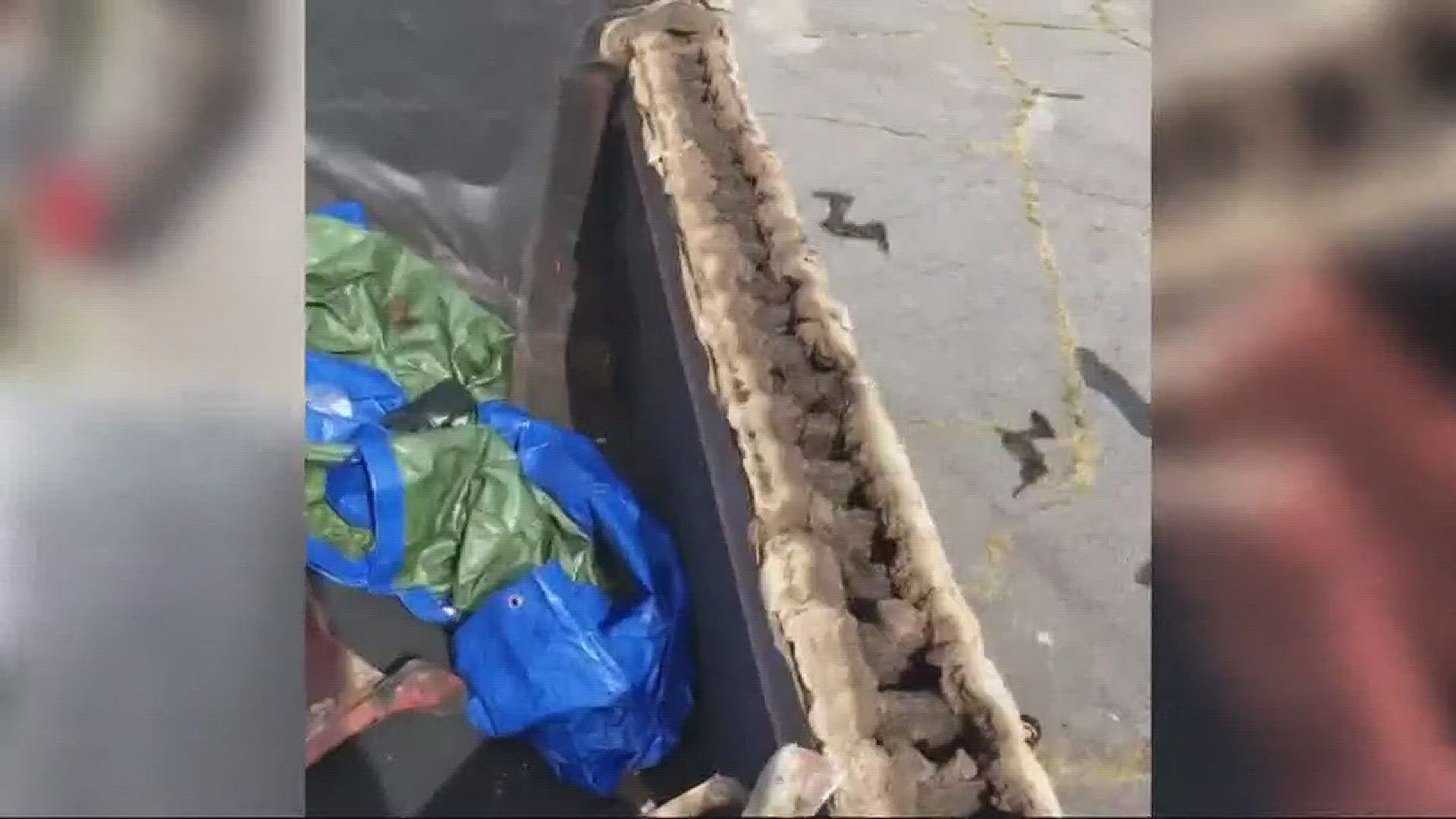MAIDEN, N.C. -- For 72 years, American Legion Post 240 has served the veterans of Maiden.
"All of our old timers have died out," said John Houser, an Army and Marine Corps veteran who serves as the Post's adjutant. "Now it's just our young chickens out here and you can see how young I am!"
Post 240 has been around since 1945. Its members are long with the laughs but short on money.
"Yeah, we're broke," said Houser.
But that's just part of the problem. The real issue involves new residents.
Bats are good for eating mosquito but they're menaces living within the walls of the American Legion.
The hole in the tile roof let a couple in, and then a couple became a hundred. And then one hundred became one thousand.
The bats don't live in the building, just inside the brick wall. That's where wildlife damage control agent Jeff Truitt steps in.
"I don't want publicity," Truitt said with a laugh.
But Truitt is a special guy because any wildlife removal service could charge thousands and thousands of dollars to remove the bats. Something the members of Post 240 couldn't afford.
Truitt's pride takes precedent over price.
"I'm a fellow American Legion member as well," said Truitt, who served in the Navy. "That's why I'm helping them more anything, just to help my fellow veterans."
It's not an easy job.
"You're not afraid of heights, are you?" asks NBC Charlotte's Evan West.
"Yes, but I'm more afraid of powers lines," exclaims Truitt as she shifts his rented scissor-lift near another bat-infested spot.
Truitt has done a little bit of everything, working independently overseas and then back home as a paramedic before retiring.
He expects this job to last about a week, and he's only 48 hours in but the excavation process is simple. He cuts a hole in the brick and then places a piece of plywood with a small opening over the hole.
He then inserts a plastic-bag valve, where bats can fly out but not back inside.
"I don't do it to make money or get rich," said the humble Truitt. "I just do it to help people more than anything."

